In the play Principle by The Nine, a high school grapples with a clash between strict new rules and traditional values.
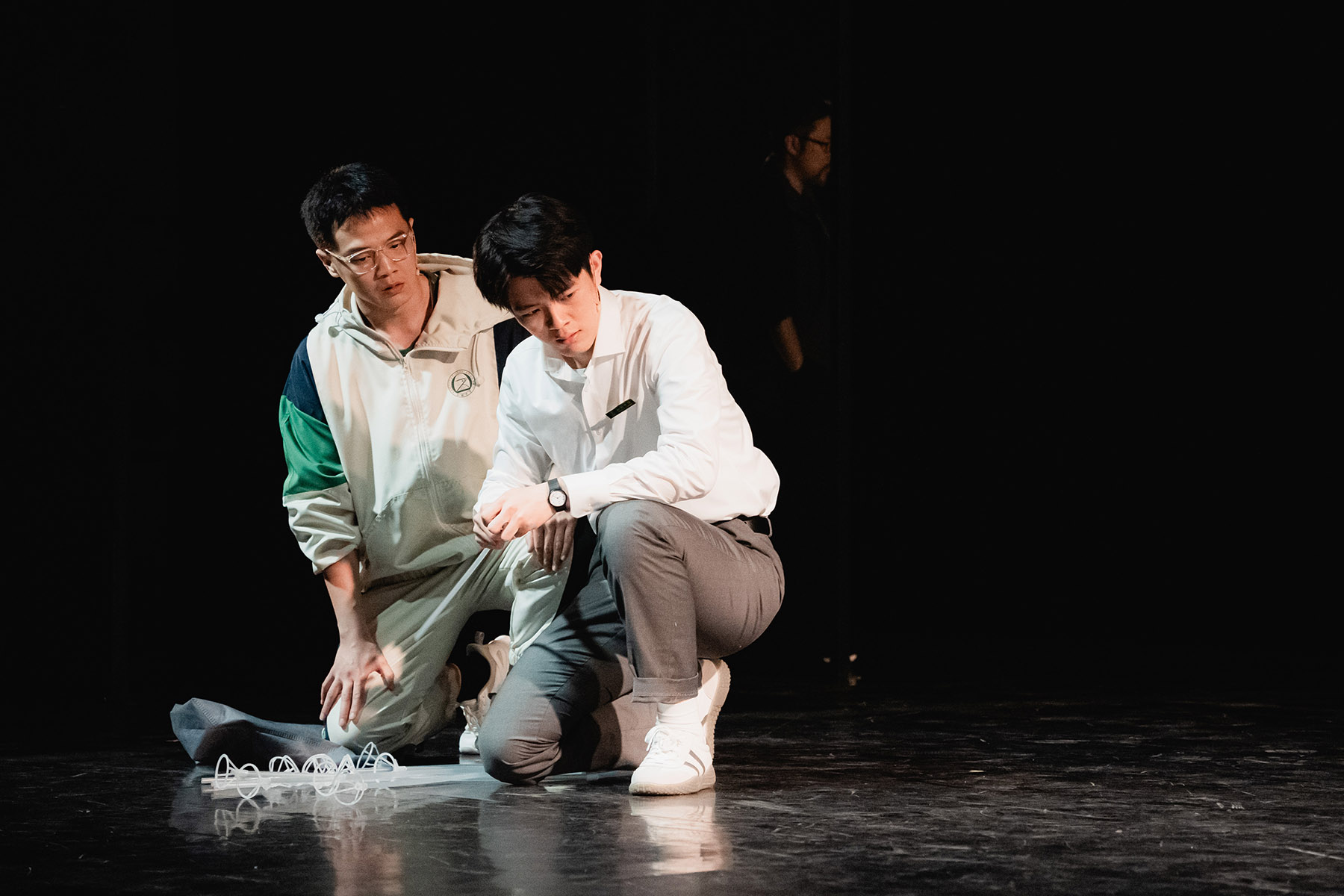
How can we educate someone to become a true individual? This is the ultimate question posed by the play Principle, which depicts a battle of principles among its characters.
The story is set in a high school named Aequitas Academy where the new principal, Yang Zhi, arrives with the mission of improving the school's academic performance. She introduces a series of new rules, particularly insisting that students wear sports uniforms when playing on the playground.
This decision stirs discontent among both teachers and students. Vice Principal Chen Xian, supported by the head of the teaching department, Cai Lin, steps forward in opposition to preserve the school's longstanding traditions. The outspoken student council president, Fu Mingzhen, and the thoughtful school newspaper editor, Liang Jiawen, also get involved. However, the new principal remains unwavering and strictly adheres to her principles. As a storm brews on campus, it leaves teachers and students in a dilemma.
READ MORE: The jury returns a positive verdict
This play is the first adapted work by the theater group The Nine, renowned for its popularity among Chinese young people. They have transformed the original Cantonese play — penned by Ivan Kwok, a playwright from the Hong Kong Repertory Theatre — into a Mandarin version, relocating the story from a Hong Kong school to one on the Chinese mainland. Premiering in Beijing on May 10, the play will tour over eight cities across the country.
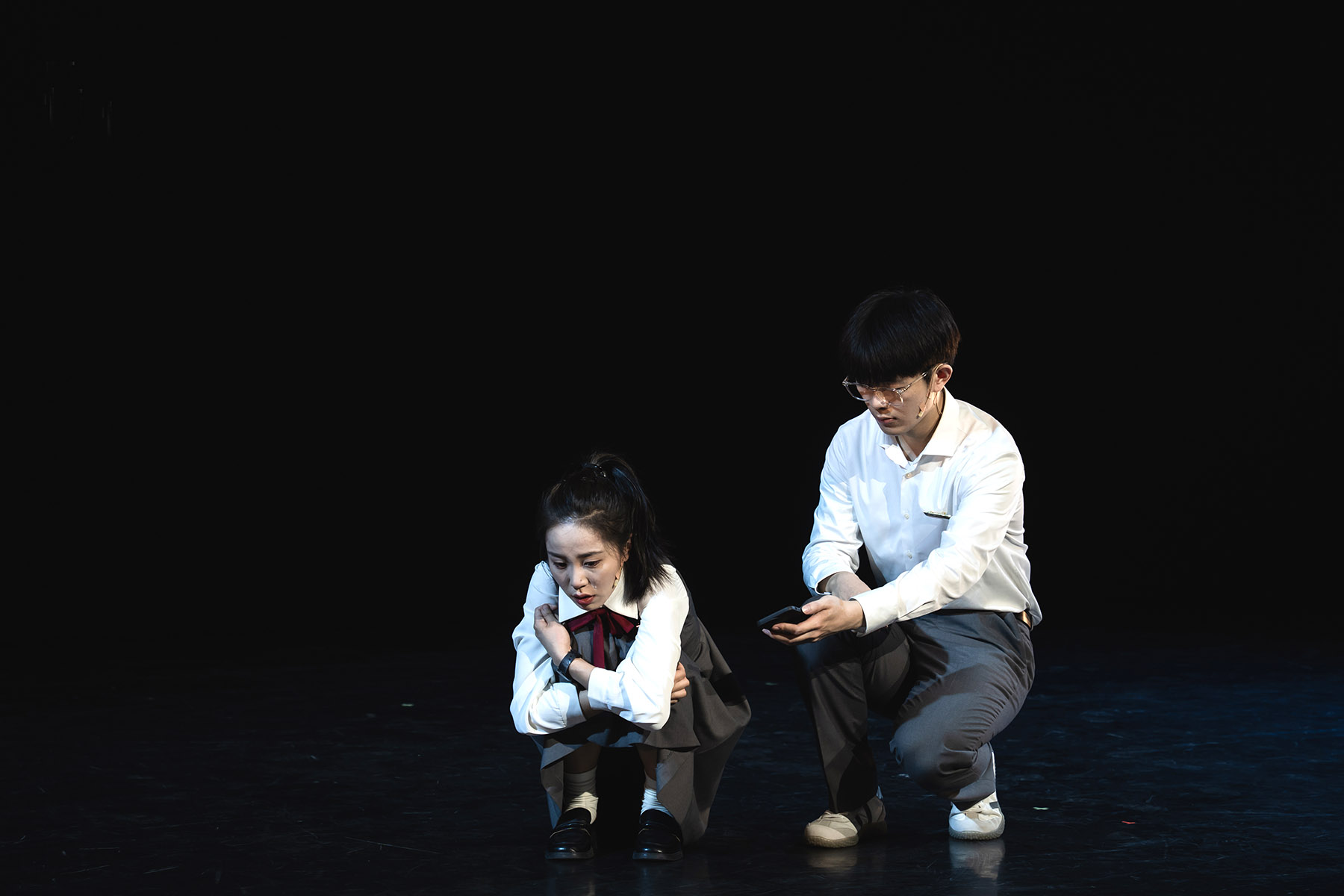
The Nine initially began as a nonprofessional university theater club. After emerging from Peking University, they achieved great commercial success, critical acclaim, and a large fan base with their original five-part series focusing on the intellectuals during China's Republican period (1912-1949).
This time, collaborating with another theater group and adapting Kwok's work represent The Nine's attempt to "open up new possibilities", as stated by the show's producer, Jiang Xinwen. "In addition to our original productions, we hope to introduce some excellent external works, providing our teams with the opportunity to experience different perspectives. At the same time, we want to show the industry that we are an open-minded theater group," Jiang said.
Zhu Hongxuan, the director of the show and founder of The Nine, explained that she chose to adapt this play because she was moved by the dialectical nature of the script.
"The script presents various viewpoints thoroughly. Rather than taking a definitive stance, Guo showcases the collision of different perspectives within a short time and a relatively simple space," she explained.
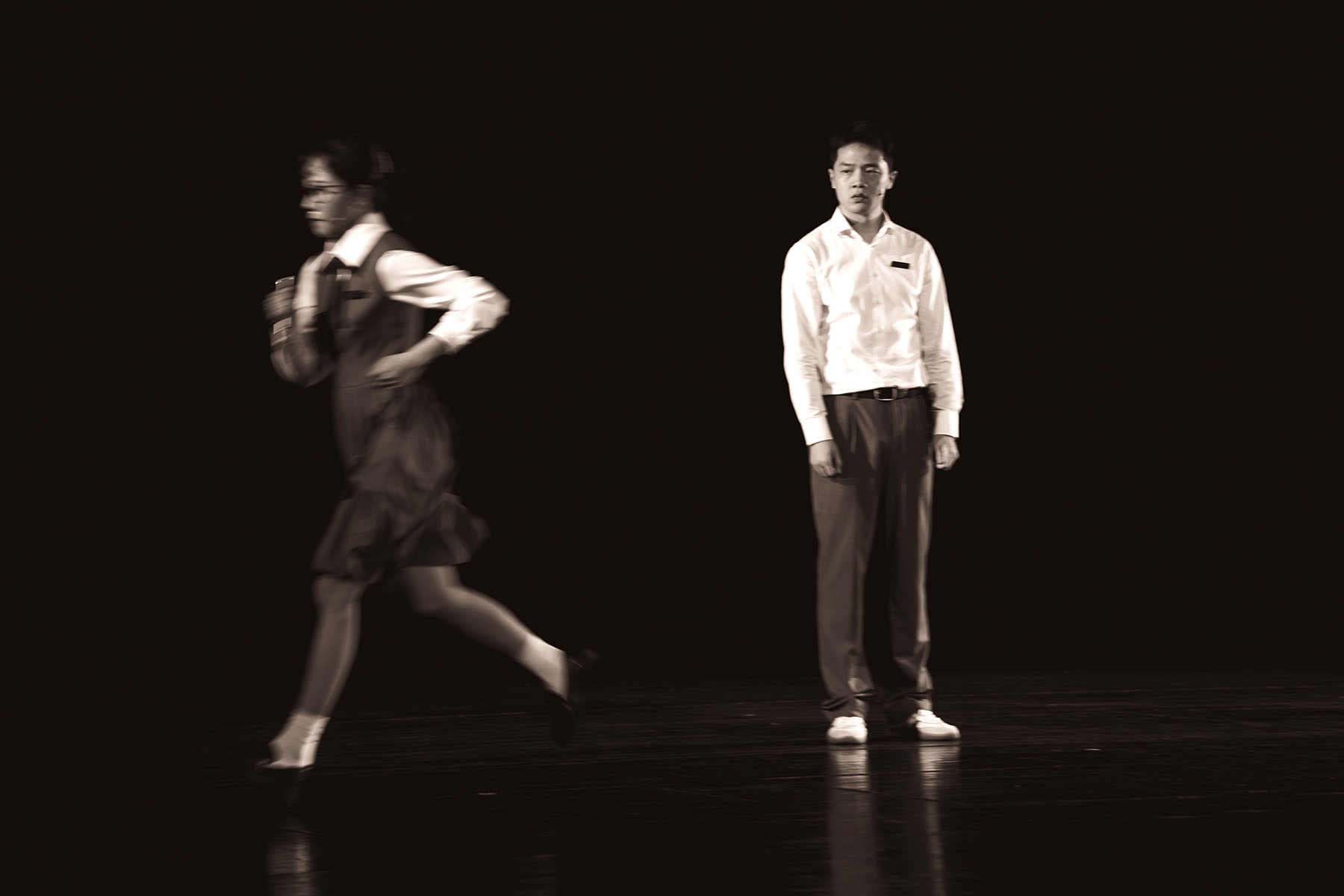
According to Zhu, the play serves as both an "allegory" and a "microcosm". Through the topic of school regulations and the diverse attitudes of both teachers and students, it explores different views on humanity and the world.
Although distinct from The Nine's previous dramas, this play maintains the core theme of "telling stories about noble spirits and the people and events that uphold these spirits", said Zhu. And many audiences summarize this spirit as idealism.
"Idealism is reflected in the fact that no character is portrayed as a complete antagonist; each person has a commendable aspect," said Zhu.
She took Vice Principal Chen and Principal Yang as examples. Chen has complex thoughts and independent pursuits. He hopes students can grow and make choices on their own, becoming true individuals rather than objects or machines. While Yang may seem unlikable, standing in opposition to students and teachers, she has a stable core and emotions, willing to pay the price for her stance. "She is someone who can withstand storms, a female character rarely seen in our current literary and theatrical works," Zhu said.
As for the two student characters, they complement each other, representing different aspects of youth: Fu is bold and daring, while Liang is meticulous and gentle.
Zhu feels a closer connection to Liang, yet she is intrigued by Fu, whom she describes as "constantly leaping like a flame", someone very different from herself.
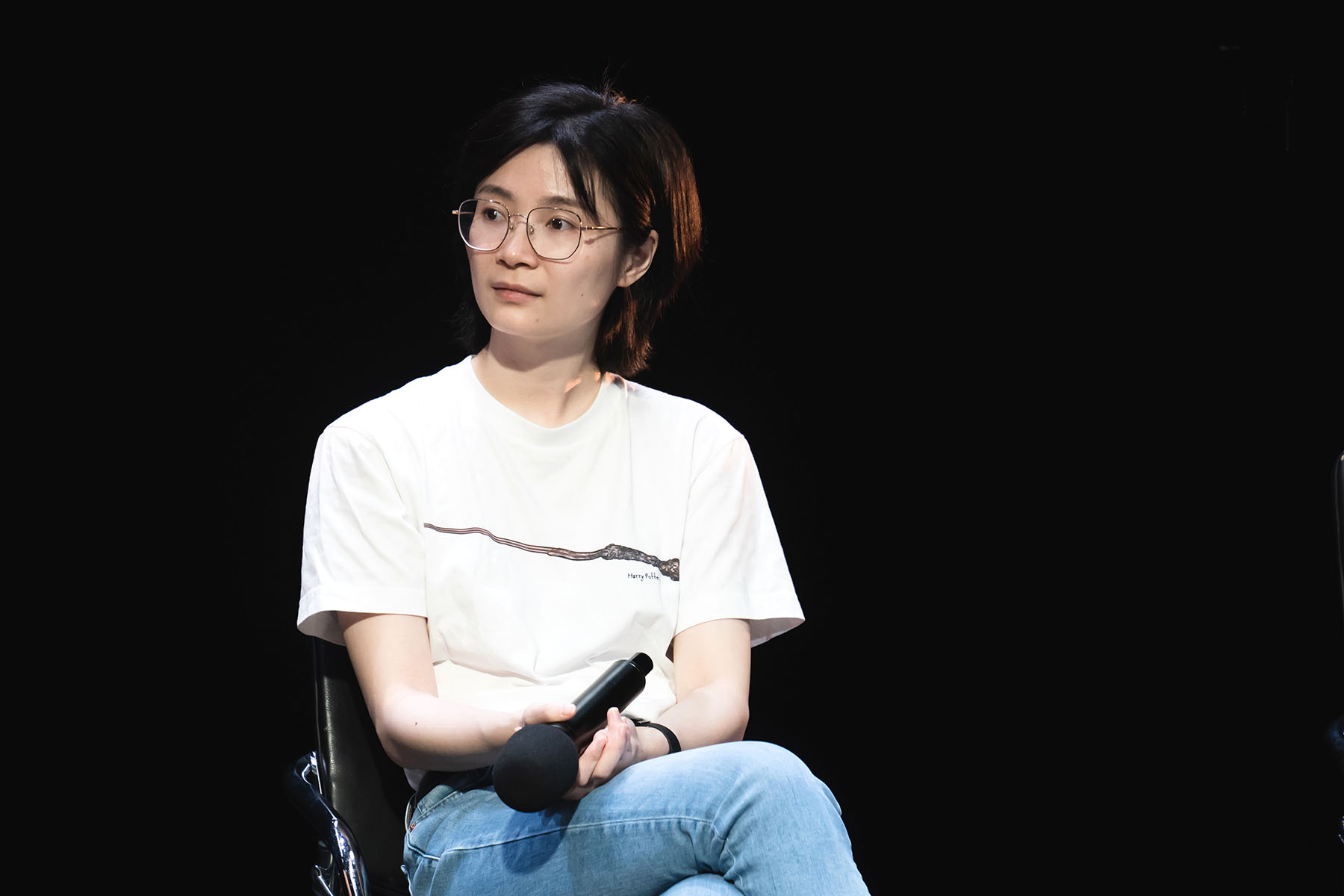
Growing up in a traditional educational setting in a small town in Ganzhou, East China's Jiangxi province, Zhu excelled academically in high school. She was admitted to Peking University in 2007 as the top scorer in liberal arts in Jiangxi.
However, she recalled her high school days as "lifeless".
"Everyone was so well-behaved. No one dared to question the teachers, even when the rules seemed unfair," Zhu said. "This is why encountering a character like Fu was really eye-opening for me, and I believe Fu embodies the true spirit of youth."
A unique change in this play compared to the Cantonese version is its more diverse cast. Four young actors — Xu Wenxin, Wen Ziqi, Ren Zhenhui, and Luo Qiyue — take turns playing Fu and Liang, with gender and roles interchangeable, each combination bringing new dynamics.
Xu found it a rare opportunity to portray two almost completely opposite characters in the same play, a task that was both enriching and demanding. "During rehearsals, just as I started getting familiar with one character, I had to switch to the other one," she said. "At one point, I felt distant from both characters, unable to grasp either."
Wen, on the other hand, discovered a distinctive gesture to distinguish the personalities of Fu and Liang. In one of the scenes, while both characters point at Principal Yang, Fu does so directly and boldly to express dissatisfaction, whereas Liang hesitates before slowly raising a hand, and then quickly turns it into a head-scratching gesture to soften the aggressiveness, adding an element of awkwardness and humor.
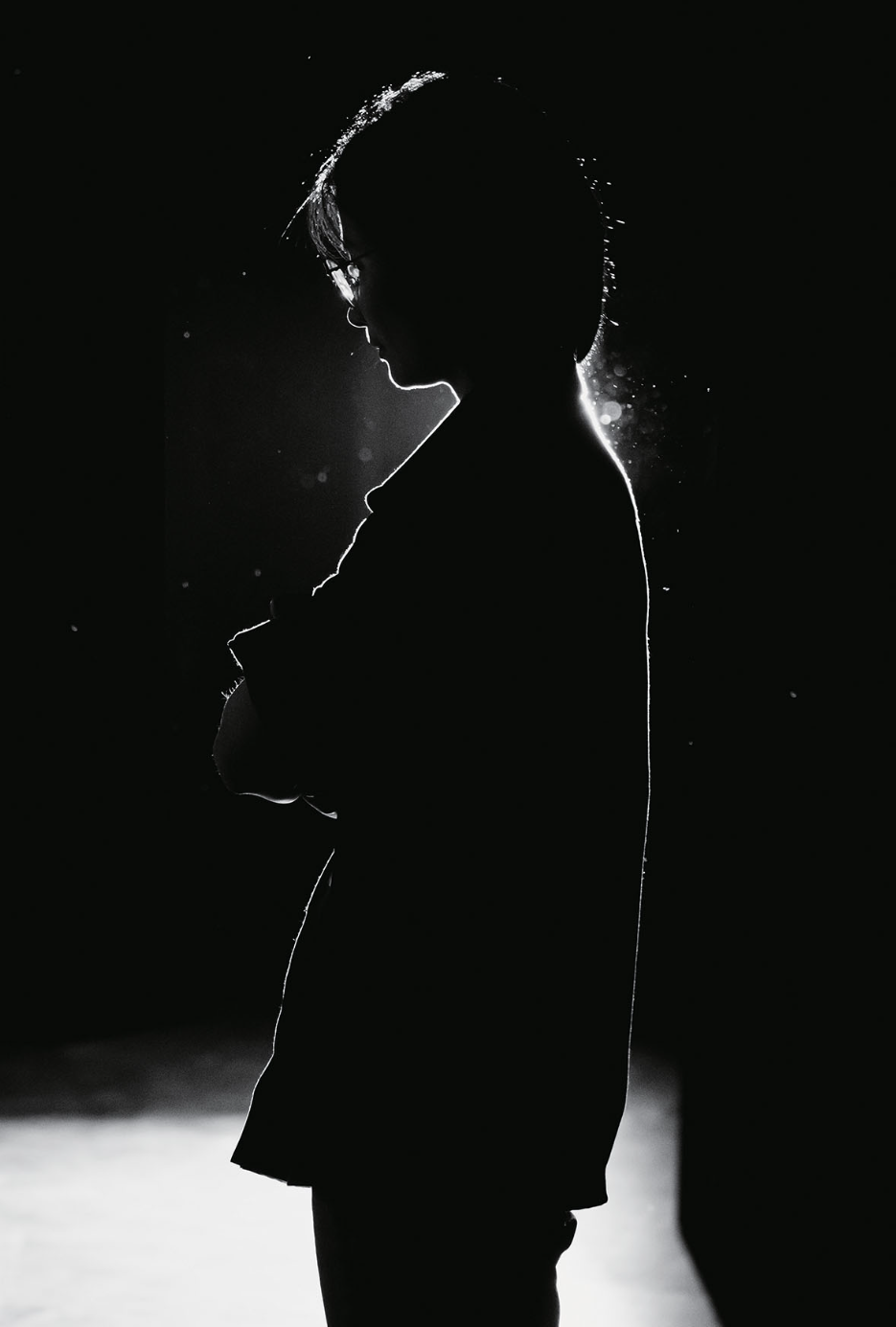
For Ren, the challenge was to immerse herself in the high school environment, given her lack of experience with typical high school life — she went straight from an art middle school to university at 16 and graduated at 19. So, after landing the roles, she interviewed friends, watched related TV dramas, and even visited a traditional high school.
"Reflecting on my own school years, I'm grateful to have encountered a great teacher like Vice Principal Chen, who respected students' opinions and helped me a lot," she recalled.
Luo was a top student in high school. He was enrolled in China Foreign Affairs University, and even took the exam for China's Ministry of Foreign Affairs before ultimately entering the theater industry out of a love for drama.
Having always been interested in writing, Luo crafted some works during his school days. He even wrote detailed character biographies for Fu and Liang in the play.
Alongside his acting career, Luo aspires to become a playwright and director in the future. "I hope that with more life experiences and reflections on reality, I can one day create and produce engaging plays," he said.
Zhang Yuying contributed to this story.


